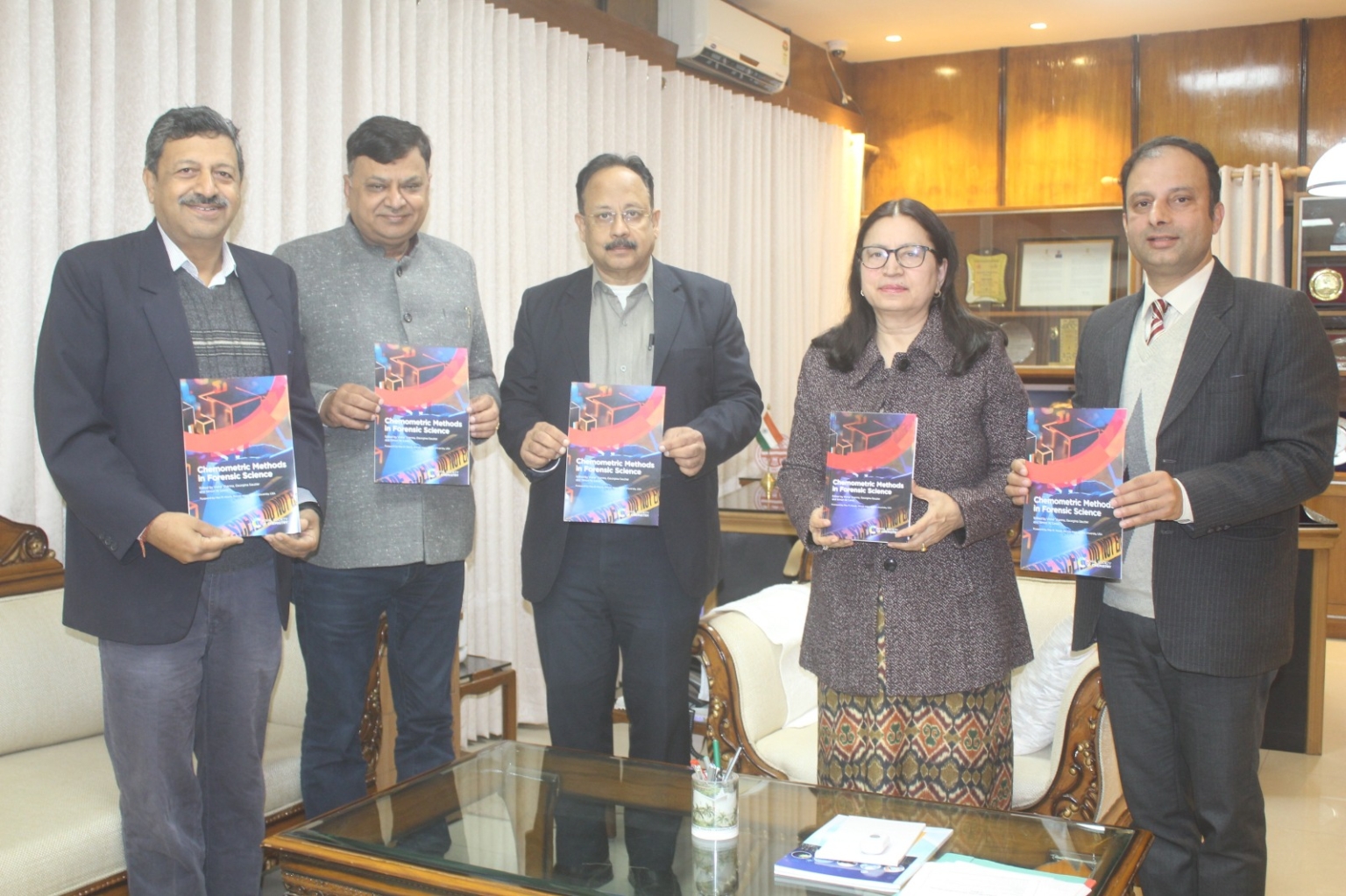Panjab University Hosts Launch Event for Royal Society of Chemistry’s Book on Chemometric Methods in Forensic Science
Koral ‘Purnoor’, Demokratic Front, Chandigarh – December:
Panjab University’s Honourable Vice Chancellor Prof. Renu Vig, presided over the unveiling of the book “Chemometric Methods in Forensic Science,” edited by Dr. Vishal Sharma from the Institute of Forensic Science & Criminology. Published by the Royal Society of Chemistry (UK) and co-edited by Prof. Simon Lewis and Dr. Georgina Sauzier from Curtin University, Perth (Australia), the release ceremony saw the presence of key figures like Prof Harsh Nayyar (Director RDC), Prof. Navdeep Goyal (Dean Faculty of Science), and Prof. Rajat Sandhir (Professor Biochemistry & Former Coordinator Forensic Science Department). Foreworded by Max M. Houck, Ph.D., FRSC, from Florida International University, USA, the book is celebrated as a vital milestone supporting scientific understanding and criminal justice system across the globe.
Dr. Vishal Sharma expressed that after more than three years of meticulous effort, the book presents chemometric methods specifically designed for professionals in forensic science. Addressing a literature gap, it outlines the application of these methods in forensic casework, their limitations, and emerging trends. The book is structured into sections covering the background, types, basic understanding of Chemometric methods and its applications in various forensic disciplines like in Trace evidence analysis, Environmental Forensics,Illicit Drugs and Pharmaceuticals Analysis, Fire and Explosions Investigation, Food Forensics, Cosmetics and Personal Hygiene Products, Questioned Document Examination, and Biological Materials. Offering detailed discussions on their advantages, limitations, and efficiency, it serves as a valuable resource for Forensic Science students.
The rising popularity of chemometrics in forensic applications, particularly in multivariate statistical tools, is highlighted. With relevance across various forensic disciplines involving chemical analysis, the book provides essential knowledge for students, researchers, practitioners, and other stakeholders. The aim is not only to promote the application of chemometrics in forensic casework but also to encourage further research and critical discussions. The book is envisioned to contribute significantly to advancing forensic science by enhancing the validity and integrity of forensic evidence, thus strengthening the criminal justice system.




